Suicide Prevention Panel Discussion: “Changing the Narrative”
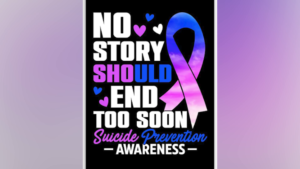 Suicide is one of those topics that is considered taboo to talk about, especially among the adolescent population. But the Mental Health Association and UNICEF Belize are of the view that youths must have these conversations. As a result, they partnered with the Department of Youth Services to host a panel discussion on suicide prevention led by high school students. The discussion was moderated by a mental health professional, with additional experts on standby to offer intervention. News Five’s Paul Lopez was there. He filed the following report.
Suicide is one of those topics that is considered taboo to talk about, especially among the adolescent population. But the Mental Health Association and UNICEF Belize are of the view that youths must have these conversations. As a result, they partnered with the Department of Youth Services to host a panel discussion on suicide prevention led by high school students. The discussion was moderated by a mental health professional, with additional experts on standby to offer intervention. News Five’s Paul Lopez was there. He filed the following report.
Paul Lopez, Reporting
The Ministry of Health and Wellness reports that suicide is the second leading cause of death among young people aged fifteen to twenty-nine. Considering this alarming statistic, the Belize Mental Health Association and UNICEF Belize teamed up with the Department of Youth Services to host a panel discussion on suicide prevention and mental health, led by high school students.
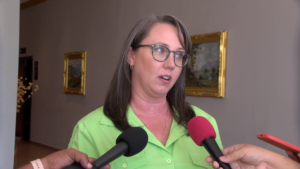
Christa Courtenay
Christa Courtenay, President, Belize Mental Health Association
“There is a moderator and of course professionals on standby in case we need to intervene. The idea is that they are having conversations anyway. So, we would like to give them a safe space to talk about suicide, suicide prevention, give them tips and ideas. There are also resources that are printed out an available for them while connected them with the UNICEF resources, the Your Report program, etc.”
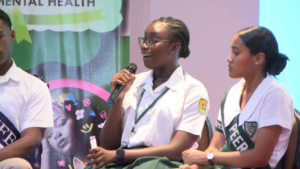
Panelist #1
Panelist #1
“To add to the common misconception that people who talk about suicide are just seeking attention, whether or not its for attention or them seeking out for help, the root of the problem should always be found, because talking about it might be their way of generally seeking help and them feeling a sense of hopelessness.”
Students from thirteen high schools gathered at the Princess Hotel to engage in the panel discussion. UNICEF Belize’s health and nutrition specialist says, globally adolescents do not have a lot of opportunities to address their mental health challenges or access to the necessary services.
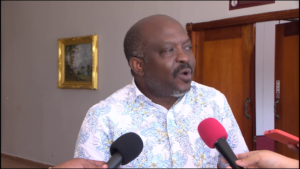
Olusola Oladegi
Dr. Olusola Oladegi, Health and Nutrition Specialist, UNICEF Belize
“The event today is to commemorate World Suicide Prevention Day which focus on changing the narrative. What does it mean to change the narrative? For example, we know that suicide is something nobody wants to talk about. We need to talk about it and be sensitive about it. It is like when people die you say someone committed suicide like it is an offense. Nobody committed suicide. When people die from suicide, we should say this person took his life or this person died by suicide, not that somebody committed suicided. So today, we would like to bring students from so many schools in Belize, let them talk about suicide. There are so many issues associated with suicide. People have anxiety, depression, family problems, the issue of poverty, gender-based violence, bullying.”
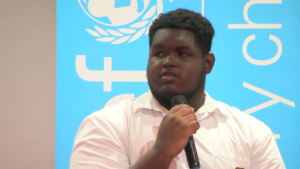
Panelist #2
Panelist #2
“The research conducted or that we have gathered shows that males have a higher suicide rate compared to females, although females may attempt suicide more frequently. This is from the ministry of health and Wellness in 2022. And according to PAHO, rural areas in Belize tend to have higher suicide rate likely due to limited access to mental health services and economic hardship.”
Reporter
“What advice would you give to parents or grandparents who wants their kids to open more to them?”
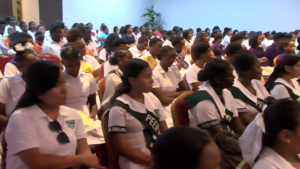 Christa Courtenay
Christa Courtenay
“That is a big question. If someone is interested in getting their child to open more to them, drop your opinion, drop your judgment and just listen. Before you try to change their minds, hear where they are coming from and try to understand what they are feeling and where they are before you try to change their minds. Teenagers specifically do not care how much you know how much you care.”
Reporting for News Five, I am Paul Lopez.





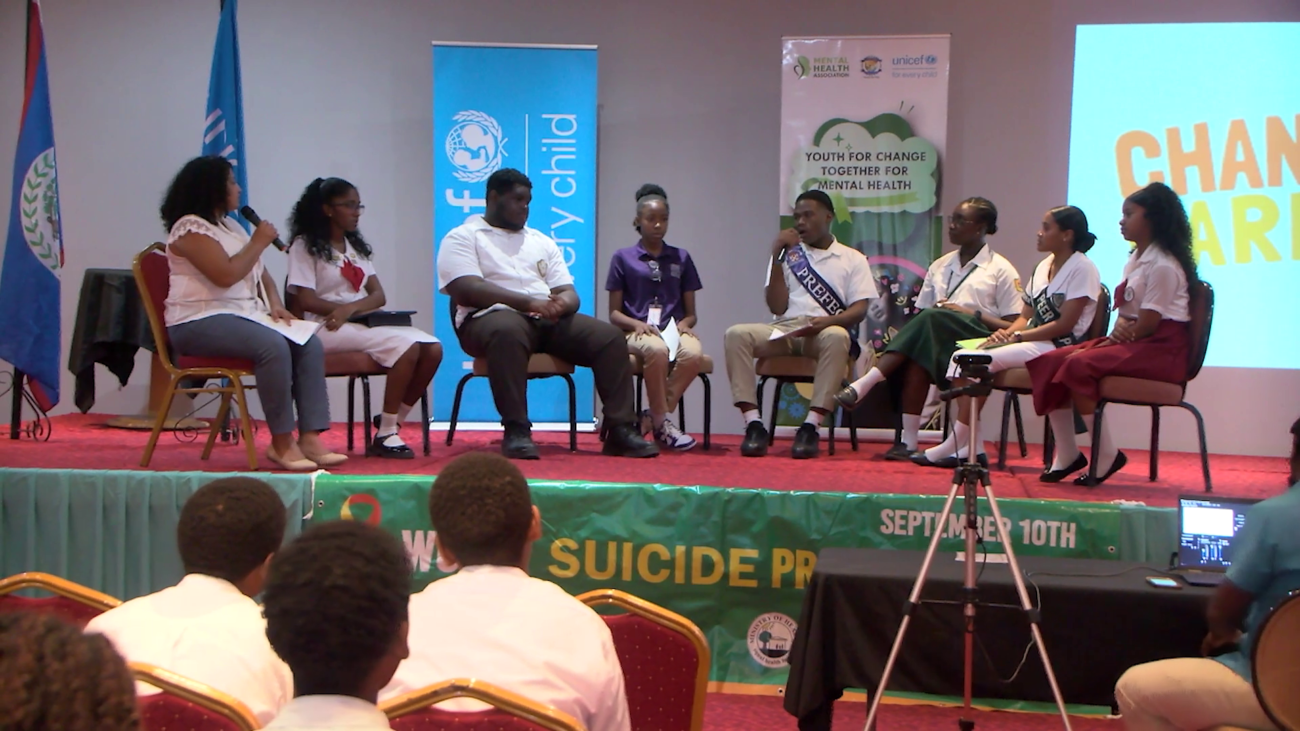

Facebook Comments